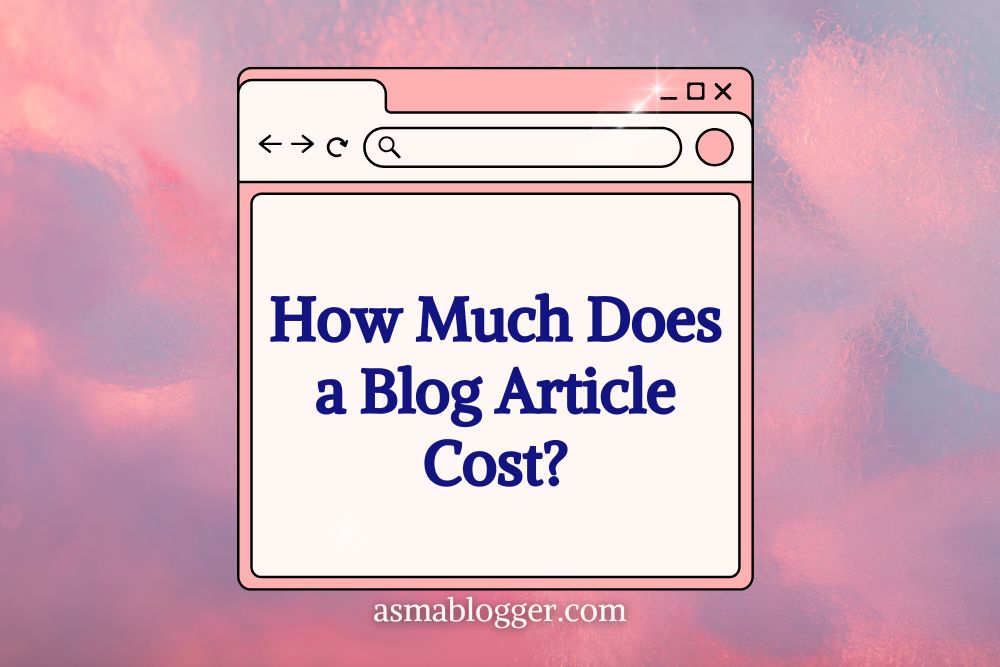In the world of online shopping, high-quality e-commerce content writing is necessary to draw in and retain customers. It’s all about creating persuasive and informative text that sells products or services on digital platforms. The goal is to target specific audiences to boost sales and drive website traffic.
Table of Contents
ToggleAre you curious about what makes e-commerce content effective? Look no further! I will cover the essentials of e-commerce content writing, discuss the role of an e-commerce writer, and provide practical tips for writing persuasive content that encourages purchases and builds customer loyalty.
What is E-commerce Content Writing?
E-commerce content writing plays a crucial role in the success of online businesses. It involves creating compelling text that attracts customers and drives sales on e-commerce platforms. Whether you’re selling products or services online, effective content writing can ensure a significant difference in engaging your readers and convincing them to make a purchase.
Any written material an online business uses is considered e-commerce content writing. Examples of e-commerce content include:
Product Descriptions: Detailed and appealing descriptions of products.
Website Content: Engaging text for landing pages and other website sections.
Blog Posts: Informative articles related to the products or services.
Marketing Copy: Text for advertisements and promotional materials.
Social Media Posts: Short and engaging posts for social media platforms.
Emails and Newsletters: Updates and offers sent directly to customers.
Why Does E-commerce Content Writing Matter?
E-commerce content writing goes beyond just describing products—instead, it’s all about telling a story. By using persuasive words and highlighting the benefits of your products, you can connect with potential customers.
Consequently, this connection builds trust and makes them more likely to choose your brand over others.
Effective e-commerce content writing can:
- Increase your conversion rates by showing your products more attractive and understandable.
- Build brand authority and credibility through informative and trustworthy content.
- Increase customer experience by providing valuable information that helps shoppers make informed decisions.
- Increase search engine rankings, driving more qualified traffic to your online store.
What are the best tips for effective e-commerce content writing to get more sales?
Creating memorable and informative e-commerce content involves several key practices:
1. Know Your Target Audience
Every online business serves a unique customer base. Understanding your specific audience’s preferences, interests, and pain points is important when creating e-commerce content. Create detailed buyer personas to customize your content for specific demographics.
Understanding what drives your audience enables you to address their needs directly, making your content more relevant and engaging. Additionally, understanding their online behavior will help you choose the right platforms and formats for your content, maximizing its impact.
2. Use Storytelling Techniques
Effective e-commerce content does more than just state facts – it engages readers by showing a narrative that connects to the brand’s mission and values. In a competitive online world, standing out and making a lasting impression is key. Creating personal connections with customers can make all the difference.
Storytelling can humanize your brand to make it more memorable and relatable. By sharing stories that connect with your audience’s experiences and emotions, you can build stronger connections and establish brand loyalty. This not only encourages repeat business but also sparks positive word-of-mouth. So, tell your story and watch your brand thrive!
3. Focus on Value
Your content should clearly communicate the value and unique benefits of your company’s products or services. Incorporating positive customer reviews and testimonials as “social proof” can also enhance credibility and authority.
Highlighting how your products solve specific problems or improve the customer’s life adds depth to your content. Use some case studies and real-life examples to illustrate the benefits. This will help potential customers visualize the great impact of your products, thereby increasing their confidence in making a purchase.
4. Use Persuasive Language
A significant aspect of e-commerce content writing is encouraging readers to take beneficial actions, such as signing up for your email newsletter or making any purchase. Use engaging and persuasive language, favoring an active voice over a passive one for a more direct tone and emphasizing the customer’s engagement with the content.
Words that induce emotion and urgency can motivate readers to act quickly. Include strong calls to action that guide them toward the desired outcome, whether it’s buying a service, signing up for a newsletter, or exploring more content on your site.
- Which Blogs Get the Most Traffic? Proven Tips for Explosive Growth
- Can Blogs Be Personal? Build a Blog That Reflects You
- How Much Does a Blog Article Cost? 2025 Pricing Trends
- Is Blogging Hard? Proven Ways to Blog Like a Pro
- How Many Blog Posts Before Launch: Tips for a Strong Start
5. Include Descriptive Imagery
Vivid imagery will be a powerful marketing tool, aiding potential customers in visualizing content. Employ detailed descriptions and robust, positive adjectives to bring your content to life. Descriptive imagery will help customers form a mental picture of the product, making it more tangible and appealing.
Combine text with high-quality visuals like photos and videos to improve the overall experience. Showing products in use or highlighting specific features will make the content more engaging and persuasive, ultimately leading to higher conversion rates.
What Does an E-commerce Writer Do?
E-commerce writers are essential to the success of online businesses. The content they create can significantly impact a customer’s experience on a website or social media page. That’s why e-commerce content must be informative, attention-grabbing, and engaging to attract potential customers.
With the right words, they can effortlessly turn visitors into loyal customers and boost sales.
Typically, e-commerce writers:
Optimize SEO Content:
Use keywords strategically to help the content rank higher in search engine results. Ensure your content is not only SEO optimized but also provides value to readers.
Write Clear Calls to Action:
Encourage your website visitors to take your targeted actions, such as signing up for your email newsletters, making a purchase, or exploring products further. Make your CTAs compelling and easy to follow.
Ensure a Consistent Brand Voice:
Always maintain a consistent tone of voice and style across all content to establish your brand identity and build customer trust. Consistency in messaging helps in creating a cohesive brand experience.
Develop Social Media Content:
They create captivating posts for social media platforms to promote products, engage with followers, and drive traffic to the website.
Research Industry Trends:
Always stay updated about the latest news in your field. This helps ensure your content is current and matches customers’ interests. By understanding these trends, you can predict what your customers need and want.
Follow Style Guidelines:
Adhere strictly to the e-commerce company’s specific style guidelines to maintain professionalism and consistency in all communications. Consistent formatting and tone enhance readability and brand perception.
Collaborate with Marketing Teams:
Work closely with marketing teams to align your writing with broader marketing objectives and campaigns. Collaborative efforts ensure that your content supports overarching business goals effectively.
E-commerce content writers may also use tools like Google Analytics or Google Search Console to analyze their content’s performance and make required adjustments based on feedback from team members or customers.
Need E-Commerce content writing for your business? E-commerce content writing services!
I’m an experienced copywriter dedicated to increasing your sales and generating revenue through compelling content. Whether you need product descriptions, engaging website copy, or persuasive marketing emails, I can write them all. With years of experience writing effective E-Commerce content, I understand how to highlight your products’ unique features and benefits to attract customers.
Explore my services or reach out to discuss how I can write content specifically for your business needs to supercharge your online presence and drive success in your E-Commerce business.
Conclusion
E-commerce content writing is a necessary part of any online business. By understanding your audience, using persuasive language, and focusing on value, you can create engaging content that boosts sales and improves customer experience. Whether you are writing product descriptions, blog posts, or social media updates, remember to keep your audience in mind and tell a compelling story that connects with them.
FAQ’s
1. How do I optimize e-commerce content for SEO?
To optimize e-commerce content for SEO, use relevant keywords naturally throughout your text, including in titles, headers, and meta descriptions. Create high-quality, valuable content that answers customer queries. Make sure your website is loading quickly and works well on mobile devices. Additionally, include both internal and external links to improve content credibility and search engine rankings.
2. What are the best tools for e-commerce content writing?
Some of the best tools for e-commerce content writing include Grammarly for grammar and style checks, Yoast SEO for on-page content optimization for search engines, and Canva for creating engaging visuals. Google Analytics and GSC (Google Search Console) will help you track content performance, while tools like SEMrush and Ahrefs assist with keyword research and competitive analysis.
3. Why is e-commerce content writing important?
E-commerce content writing is crucial because it directly influences a customer’s purchasing decision and their overall experience on your website. Well-written content can boost search engine rankings, increase traffic, and improve conversion rates. It will help build brand credibility, engage customers, and provide them with the information they need to make informed purchasing decisions.
4. What are some common mistakes in e-commerce content writing?
In e-commerce content writing, common mistakes can significantly impact effectiveness. Many writers use generic or uninspiring descriptions that fail to captivate potential customers. Neglecting SEO best practices limits opportunities to attract organic traffic. Inconsistent brand voice can confuse audiences, while unclear calls to action hinder the path to purchase. Overly complex language obscures product benefits rather than clarifying them. Regular content updates are crucial for maintaining relevance and customer interest.















